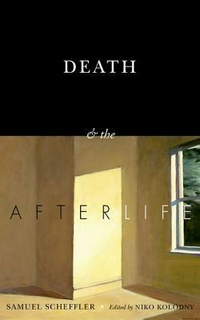Collection
THE BEST MODERN PHILOSOPHY BOOKS
In this special reading list, an expert panel of philosophers discuss and nominate what they believe to be the best modern philosophy books.
- Curated in THE BEST MODERN PHILOSOPHY BOOKS
Nussbaum opens with the ancient myth of Oresteia in which the Furies – goddesses of revenge – hunt down Orestes, who killed his mother. Athena intervenes and sets up a system of judicial law, but invites the Furies to temper their retributive anger and be part of the city. They accept and transform from bloodthirsty vengeful creatures to being kind, just, and gracious. Nussbaum delves from here into the depths of anger and, drawing upon Stoic ideas, proposes how we might think differently about forgiveness.
One of the key problems with anger is that it’s often about insecurity and status-injury, “And status-injury has a narcissistic flavor.” It would be a lot healthier for society if we were to focus on deterring future wrongs, rather than seeking Fury-like payback – which is irrational and often just makes the situation worse. It’s a book that has the potential to change the world for the better.
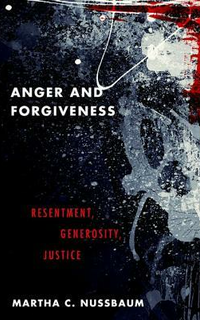
- Curated in THE BEST MODERN PHILOSOPHY BOOKS
Bakewell’s book, oriented around a number of existential questions in Michel Montaigne’s writings, is an extremely powerful way of understanding philosophy’s practical, personal and potentially transformative power. Bakewell’s blend of philosophical meditation, historical survey, and intelligent self-help counteracts philosophy’s bad reputation of being divorced from the history and affairs of the world. If you want to think through philosophy at its most inspiring and essentially helpful, you should read this book.
- Curated in THE BEST MODERN PHILOSOPHY BOOKS
Conventional thinking about evolution takes notions like ‘organism’, ‘heredity’ and ‘reproduction’ for granted. Godfrey-Smith puts these ideas under the microscope. He explores a range of unusual examples, from bacteria to bee colonies, and uses them to show us what really makes natural selection work. This book opens up a fascinating range of new issues in the philosophy of biology.

- Curated in THE BEST MODERN PHILOSOPHY BOOKS
My first choice is Quassim Cassam, Self-Knowledge for Humans: A lucid, revealing and engaging account of the many non-epistemic and non-rational factors that cloud our ability to know ourselves (and indeed others, and various states of affairs). Cassam argues persuasively that we should start with the human predicament, not an unrealistic ideal of homo philosophicus.
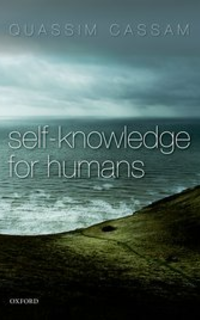
- Curated in THE BEST MODERN PHILOSOPHY BOOKS
The immediate interest of this work rests with the assessments and evaluations of some the most important thinkers and works of the late 20th century, as provided by one of the most distinguished and influential philosophers of the same period. The range and ambition of many of the works and thinkers that Williams considers is very impressive – and includes contributions by Ayer, Chomsky, Skinner, Hampshire, Rawls, MacIntyre, Nagel, Nozick, Rorty, Mackie, Parfit, MacKinnon, and Dworkin (among others).
One disconcerting lesson to be learned from reading this collection of essays is that few, if any, works from the past decade stand up well against the standards set by Williams and his own contemporaries. Whether this is a sign that philosophy is facing some sort of decline or not each reader must judge for herself.

- Curated in THE BEST MODERN PHILOSOPHY BOOKS
My friend Massimo Pigliucci has written a fun-but-also-serious comprehensive book that updates Stoicism. Admittedly, I was skeptical of Stoicism, but this book (along with Nussbaum’s) has changed some of my views because it shows that the philosophy is not all about resignation, indifference, and having a stiff upper lip. Through the lens of the Stoic virtues – practical wisdom, courage, temperance, and justice – Pigliucci highlights how it can be applied as a force for good: not only helping people through difficult times, but also on a grander scale through social activism and criminal justice reform.
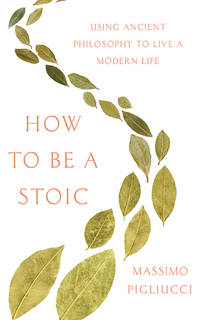
- Curated in THE BEST MODERN PHILOSOPHY BOOKS
Holton reconfigures the traditional debate about akrasia, or ‘weakness of will’. In his view, previous work on this topic has run together two distinct notions that raise very different issues —acting against your better judgement, versus failing to stick to your resolutions. With the help of a wide range of relevant empirical studies, Holton uses his analysis to cast new light on topics such as will-power, temptation, addiction and free will.

- Curated in THE BEST MODERN PHILOSOPHY BOOKS
Experts and expertise have in recent years come under attack from a number of politicians and journalists. While claims to expertise should always be scrutinized, these magisterial collections show why we should still treasure genuine scholars such as Burnyeat. He covers an astonishing range – logic, skepticism, the good life – and his perceptions are always informed, acute and illuminating.
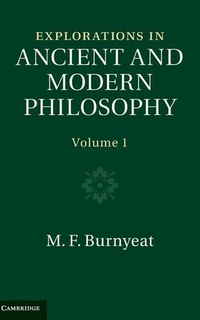
- Curated in THE BEST MODERN PHILOSOPHY BOOKS
Kitcher’s book has the rare merit of advancing a short, readable but ambitious and insightful investigation into the challenges facing contemporary “secular humanism”. Kitcher aims to show that while most forms of orthodox religious belief may well be found “incredible”, there is still reason to resist “the now dominant atheist idea that religion is noxious rubbish”.
This book may be read alongside Charles Taylor’s A Secular Age (Harvard University Press, 2007 – which was published just outside the period that we are now considering). Taylor’s study, which is both (very) long and demanding, presents an erudite study of the rise of secularism and its implications for the future of religious life. There is a rather interesting contrast with respect to both the methods and conclusions of these two works, although they also converge on several important points.
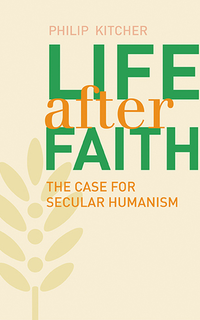
- Curated in THE BEST MODERN PHILOSOPHY BOOKS
Modern science threatens human freedom. If everything is determined, how are we in control of our actions? (And if our actions result from quantum indeterminacy, is that any better?) I wouldn’t have believed that there’s anything new to say about this old chestnut, but Ismael has managed it. She doesn’t deny modern science but instead shows us how to understand it better. By appealing to contemporary theories of causation, she puts determinism in its place and shows how human agents can be real masters of their own destinies.
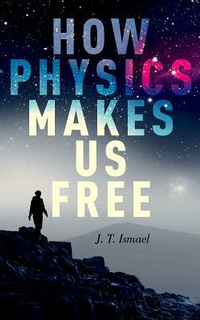
- Curated in THE BEST MODERN PHILOSOPHY BOOKS
Another book that has updated ancient philosophy is The Path, which is an easily readable introduction to some eastern philosophies. It’s also very much a practical modern philosophy book because, as the authors point out, many eastern philosophers were dealing with questions such as “How did our world become like this, and what can we do to change it?” Confucius started with something even more humble: “How are you living your life on a daily basis?”
We are complex and changing beings who live in a messy world and, despite the title, there is no straightforward answer. “The Way,” the authors say, “is the path that we forge continually through our choices, actions, and relationships. We create the Way anew every moment of our lives.”
- Curated in THE BEST MODERN PHILOSOPHY BOOKS
The aim of Scheffler’s study is to assess the assumptions required for us to sustain our confidence in the value and worth of our lives. Scheffler defends the claim that “our confidence that there will be a collective afterlife is, to a much greater extent than a confidence that there will be a personal afterlife, a condition of other things mattering to us here and now.” In a decade when so much philosophy is “academic” and “narrow” (i.e. dry, dull, arcane, etc.), Scheffler’s engagement with a large issue that is of general human importance is refreshing.
